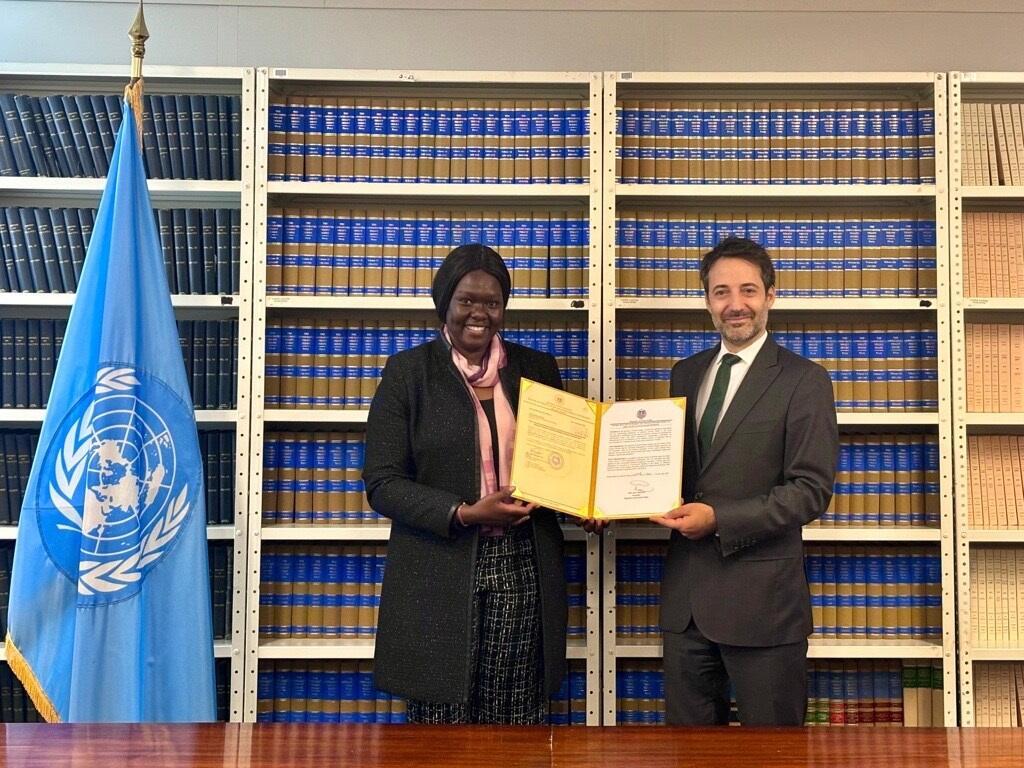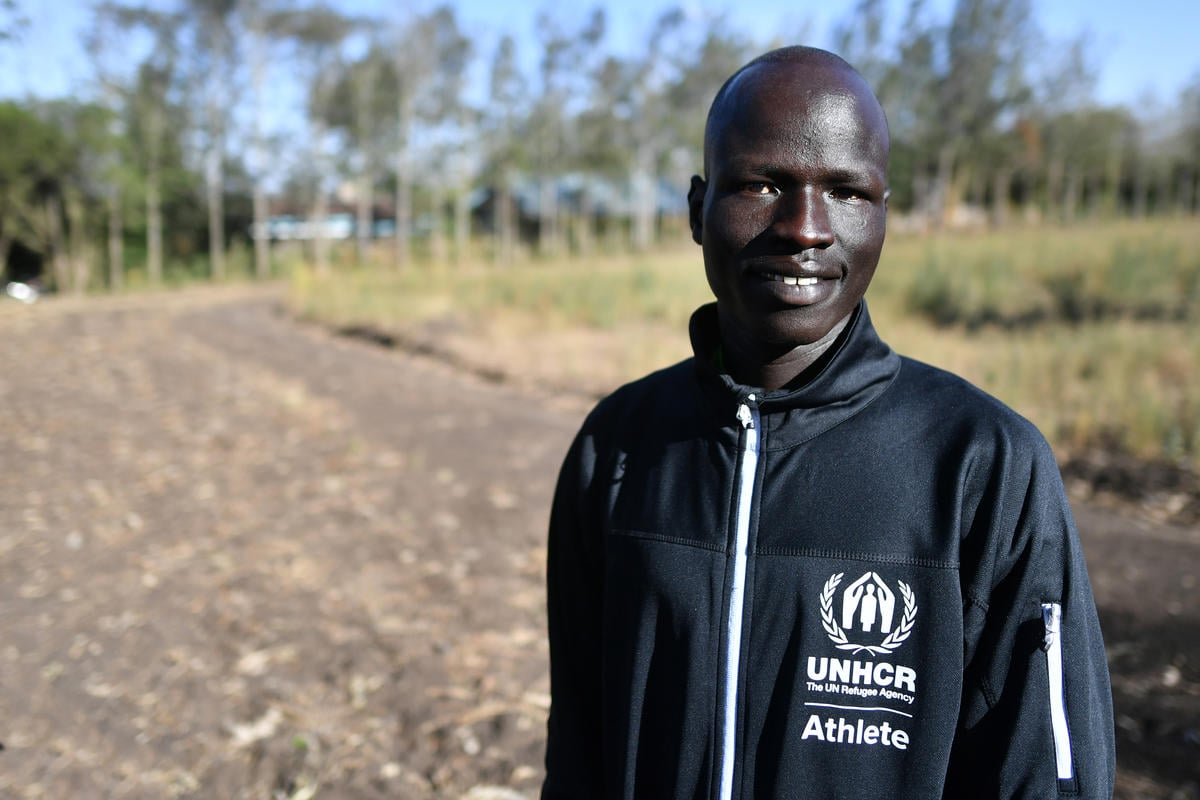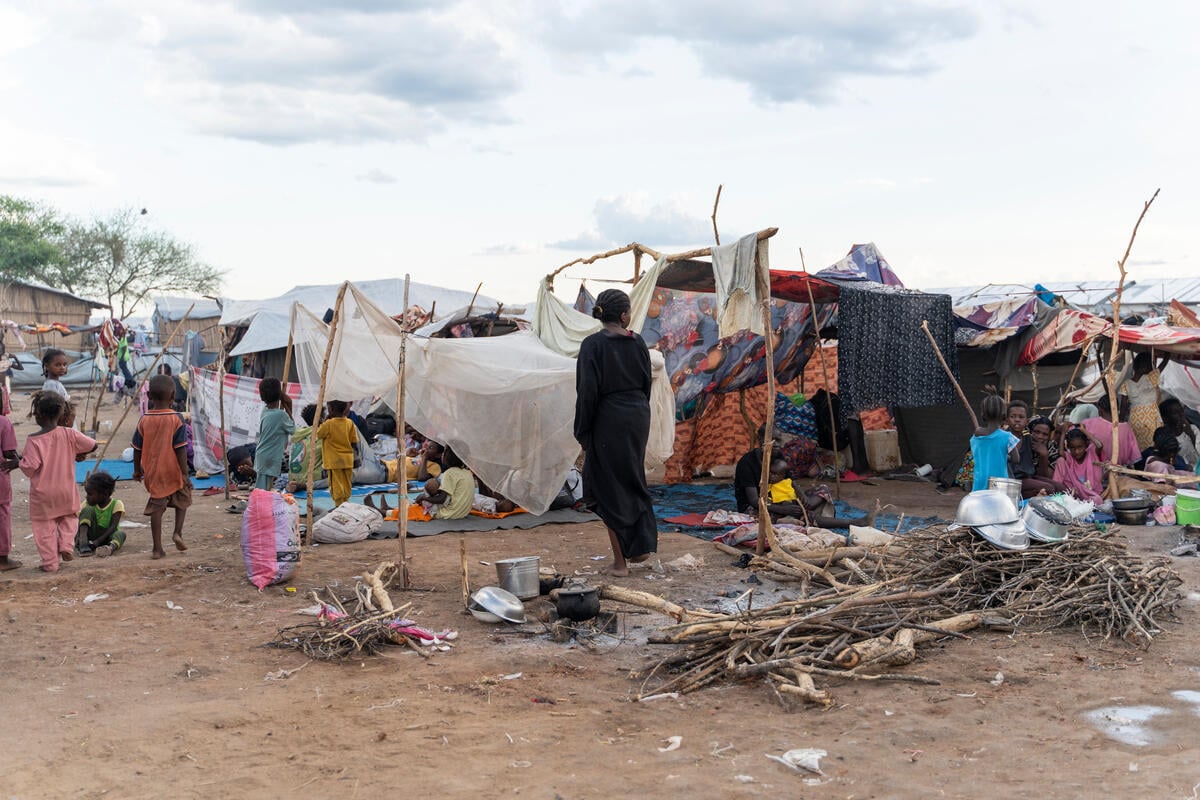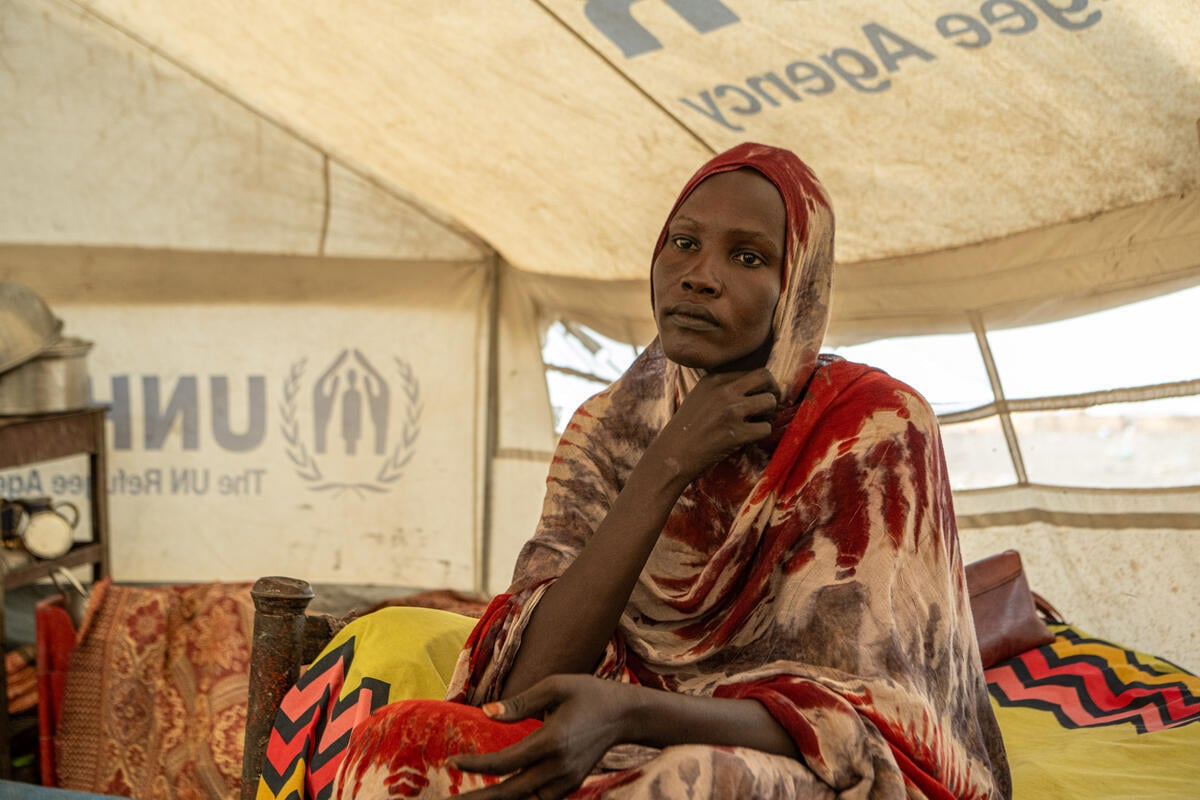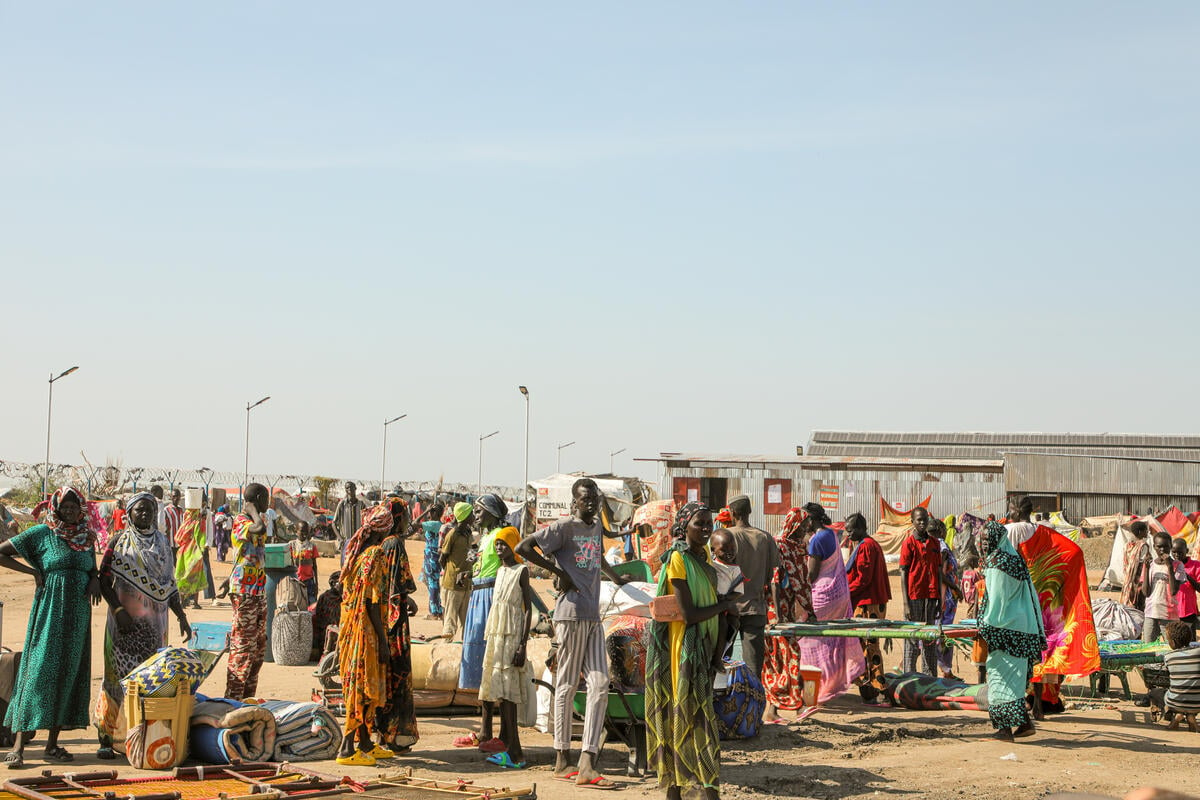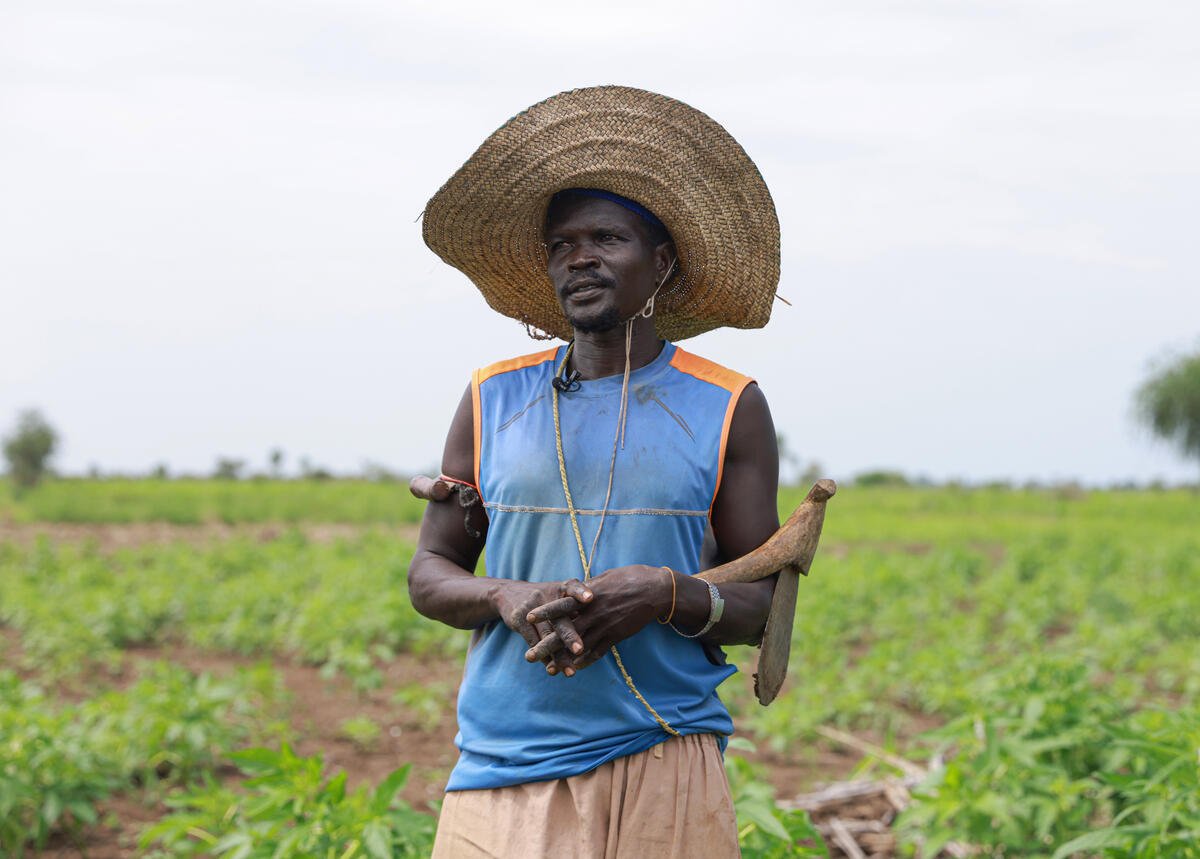UNHCR’s Grandi urges more support as thousands continue to flee Sudan daily
UNHCR’s Grandi urges more support as thousands continue to flee Sudan daily

High Commissioner Filippo Grandi meets a group of young Sudanese refugees in Wedwil refugee settlement in Aweil, South Sudan.
JUBA – UN High Commissioner for Refugees, Filippo Grandi, concluded a four-day visit to South Sudan with an urgent plea for more support to the people fleeing the crisis in neighbouring Sudan.
The four-month conflict in Sudan has triggered a huge wave of displacement in challenging circumstances. More than 240,000 South Sudanese refugees previously hosted by Sudan, as well as refugees from Sudan, have crossed into South Sudan in the past months. They are among some one million people who have arrived in neighbouring countries seeking safety.
Refugees and returning South Sudanese are reaching border areas in increasingly desperate conditions, where poor access, a lack of services, and lagging infrastructure make the humanitarian response extremely challenging. There are limited health services, shelter, water and sanitation for returnees, refugees and the host population.
Due to the sheer number of arrivals and difficulties people face moving away from border areas, the conditions have deteriorated, fuelled by congestion and the continuing rainy season. The priority remains facilitating onward transportation for new arrivals away from the border. However, funding for this is also running out, risking further backlogs.
South Sudan was already facing a dire humanitarian crisis, fuelled by the devasting effects of climate change, severe food insecurity and intercommunal violence. In addition to the urgent need for life-saving aid, new arrivals will also need help reintegrating into communities of return, themselves fragile and in need of support.
The High Commissioner met with President Salva Kiir and commended South Sudan for keeping borders open and supporting refugees from Sudan. "There is a need for strong government leadership and ownership of the response to the new emergency. Efforts need to be intensified to create conditions for sustainable returns,” Grandi said.
Over the past two years, UNHCR and its partners have been supporting areas within the country where South Sudanese refugees were returning on their own. The crisis in Sudan calls for the acceleration of solutions in South Sudan, building on the work already undertaken in the country to support displaced populations.
While additional support is required for emergency assistance for those arriving, investment in basic infrastructure and services in areas of return, including by development actors, will be crucial to make these unplanned returns sustainable and avoid further displacement.
"People are going to need support to rebuild their lives. We cannot afford to let them down,” Grandi said.
During his visit, the High Commissioner visited Wedwil refugee site in Aweil, where he observed the challenges in meeting humanitarian needs while also witnessing opportunities and critical initial steps for inclusion. Host communities have welcomed refugees, and the Government has opted for a settlement approach for the site, allowing refugees access to local services and small plots of land to farm. However, services are insufficient, and increased support is greatly needed for both refugees and host communities.
With no end to the conflict in Sudan in sight, UNHCR is coordinating with aid agencies to revise the Regional Refugee Response Plan. Overall funding needs to provide emergency life-saving aid, including food, shelter, healthcare, education and protection services, are expected to reach over $1 billion to assist more than 1.8 million people projected to seek safety in countries neighbouring Sudan by the end of 2023.
South Sudan hosts more than 323,000 refugees and asylum-seekers, mainly from Sudan, in addition to more than 2.3 million internally displaced people. South Sudan remains Africa’s largest refugee crisis, with 2.2 million South Sudanese refugees in neighbouring countries.
For more information, please contact:
- In Juba, Charlotte Hallqvist, hallqvis@unhcr.org, +211 925 580 098
- In Juba, Gift Friday Noah, noah@unhcr.org, +211 922 654 219
- In Nairobi (regional), Faith Kasina, kasina@unhcr.org, +254 113 427 094
- In Dakar (regional), Alpha Seydi Ba, baalp@unhcr.org, +221 773 457 454
- In Sudan, Assadullah Nasrullah, nasrulla@unhcr.org, +249 912 178 991
- In Geneva, William Spindler, spindler@unhcr.org, +41 79 549 59 98
- In Geneva, Eujin Byun, byun@unhcr.org, +41 79 747 87 19

